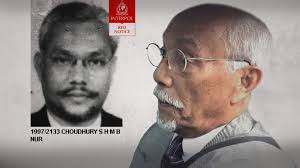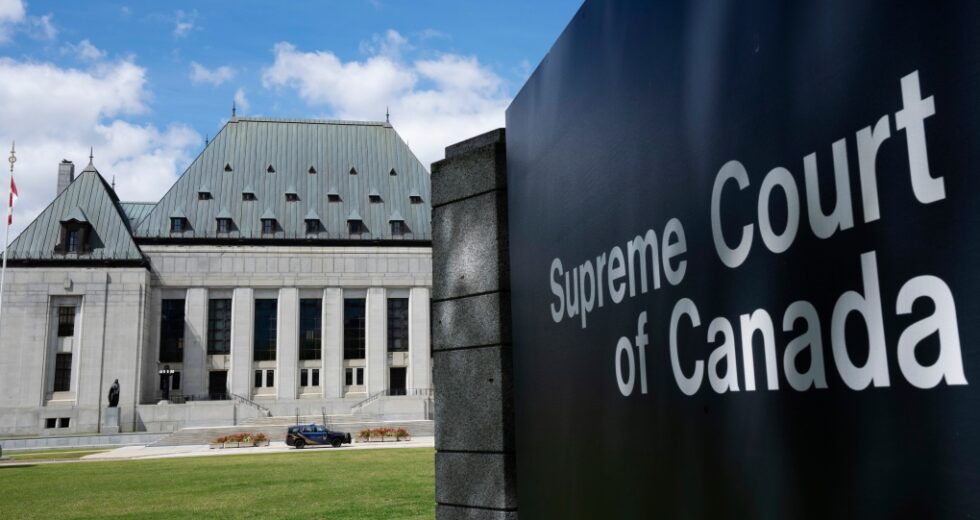Canada: Bangladesh Seeks Extradition of Founder’s Killer
“Every day, every moment we are taking this case. With this CBC documentary, all of them (Canadian officials) now know who they are hosting for the last 28 years. So we will be reaching out each and everybody and make a fresh appeal that the government of Canada should sit in a meaning dialogue for his deportation to Bangladesh.” – Khalilur Rahman, High Commissioner of Bangladesh to Canada
SB Veda <OTTAWA>
On the heels of the airing of an explosive documentary called “The Assassin Next Door” on Canada’s state-owned broadcasting channel, the CBC, revealing that Noor Chowdhury, a convicted killer of Bangladesh’s Father of the Nation ‘Bangabandhu’, Sheikh Mujibur Rahman, is living freely in Canada, Bangladesh will be making a fresh appeal to Canada for the deportation of the alleged assassin.
Speaking to TGC, Khalilur Rahman, Bangladesh’s High Commissioner in Canada, said, “We are not sitting here silently and after the new evidence on the CBC documentary, we are making a fresh appeal to the Canadian government for his early deportation”.
Rahman said that Chowdhury went to Canada around 28 years ago in 1996 and despite being a convicted killer the most serious crime in the history of Bangladesh. He added that the convicted killer has been living there freely in Canada and the Bangladesh government has been trying effect his deportation to Bangladesh for nearly three decades.
“We have been trying all the ways and requesting the government of Canada to deport him to Bangladesh to face the verdict. This judicial process possess has been very transparent free of fear. It has been certified even by Amnesty International that the accused were given all the chances opportunities to make them innocent,” he said.
The Bangladesh envoy also questioned Canada and other developed countries for their “double standard” in the name of human rights.
“Our friends (Canada) are really not about trying to appreciate our concerns and that is our problem…Canada and some other developed countries they all talk about protection and promotion of human rights. This Noor Chaudhury violated human rights with crime against humanity, still they are protecting him. They are protecting the rights of a killer but they are not doing justice to the victim and the families of the victim…this is really double standard,” Rahman added.
Apparently, it was known to Bangladeshi authorities and the Royal Canadian Mounted Police that Chowdhury was residing at a certain residence, but he had never been caught in camera.

Noor Chowdhury then (left) and now (right), convicted in Bangladesh of assassinating the first Prime Minister of Bangladesh, Sheikh Mujibur Rahman, living the good life Canada – CBC Documentary, “The Assassin Next Door”, YouTube
Rahman commented: “So it was only revolution was that he was spot on camera. We are not sitting idle. Every day, every moment we are taking this case. With this CBC documentary, all of them (Canadian officials) now know who they are hosting for the last 28 years. So we will be reaching out each and everybody and make a fresh appeal that the government of Canada should sit in a meaning dialogue for his deportation to Bangladesh.”
He stated that other than Chowdhury, several other convicted criminals are also living freely in Canada, however, Dhaka attaches this particular case with utmost priority.
“The biggest attack in Bangladesh on July 1, 2016. The mastermind was released in Canada. He went to Bangladesh from here so these are the things and we have clear evidence of presence of some convicted money launderers in Canada and we have also requested for their deportation,” he added.
While Canada and Bangladesh do not have an explicit extradition treaty between them, Section 25 of Canada’s Extradition Act allows broad ministerial discretion on whether to surrender a fugitive, and if so, on what terms. In respect of seeking assurances under Article 6 of the treaty, the minister took the position that assurances were not to be sought routinely in every case in which the death penalty was applicable; such assurances should be sought only in circumstances where the particular facts of the case warranted that special exercise of discretion.
In the Supreme of Canada’s opinion, although it was generally for the minister, not the court, to assess the weight of competing considerations in extradition policy, the availability of the death penalty opened up a different dimension. Hence, the Supreme Court observed that “the death penalty is a justice issue and is only marginally a mobility rights issue.” Citing section 6 of the Charter of Freedoms and Rights, the Supreme Court further opined that “unconditional extradition therefore leads to the conclusion that assurances are constitutionally required in all but exceptional cases.”
 The Global Calcuttan Magazine
The Global Calcuttan Magazine 